Photographs: Reuters
The devastating floods in Assam and the continuing scarcity of water in its cities are woeful manifestations of India's mismanagement of water. India may not be a water-rich country, but it is not water-starved either.
Its average annual rainfall of around 120 centimetres compares favourably with the global average of 100 cm.
Since most of this rain, nearly 89 cm, comes in just four months of the monsoon season, and its geographical spread is also skewed, conservation of rainwater is imperative.
This can help moderate, if not wholly prevent, monsoon-season floods and summer shortages.
...
SHOCKING: India wastes most of its water and exports the rest
Photographs: Reuters
Even the impact of frequent droughts can be blunted to an extent through this approach. Sadly, whatever water management policies have been pursued in the past have failed to promote the conservation of water as well as curb its wasteful use.
Consequently, on the one hand, the bulk of rainwater flows to the sea, eroding precious soil on the way and causing water bodies to silt up; and, on the other, whatever water is available is exploited unchecked.
Worse still, a substantial amount of water is being virtually exported through shipments of agro-commodities produced with a huge water input. One kilogramme of rice, for instance, takes an estimated 4,200 litres of water to grow.
Likewise, wheat consumes over 780 litres of water per kg of grain, and sugar (through sugarcane) an amount higher still.
...
SHOCKING: India wastes most of its water and exports the rest
Photographs: Reuters
To produce so much rice, wheat and sugar that some must be exported is, thus, to export water from a country struggling to get it to its fields and its taps. This is obviously unsustainable.
The solution is self-evident -- conserve each drop of rain; produce more crops per drop; change crop patterns; preserve water in situ through check dams and watershed management; store surplus monsoon rainwater in reservoirs; and enhance the regulation and efficiency of water use in all fields.
The watershed approach for water conservation can help recharge underground aquifers currently being over-tapped in several intensively farmed areas.
...
SHOCKING: India wastes most of its water and exports the rest
Photographs: Amit Dave/Reuters
The present water-stocking capacity in the country's 84 major water reservoirs and numerous other water bodies is hardly enough to meet the requirement for the whole year.
In the US, as a comparison, enough water is captured in reservoirs to take care of two or more years' consumption.
More reservoirs, big and small, on rivers and streams – especially on those that discharge considerable amounts of water into the sea – are needed.
The transfer between basins of water from surplus to deficient regions, too, needs to be enabled, if not on the giant "river interlinking" scale imagined earlier; but, for this, the states' monopolistic control over water may have to be diluted, perhaps by declaring water a national asset.
...
SHOCKING: India wastes most of its water and exports the rest
Photographs: Parth Sanyal/Reuters
Urban areas, meanwhile, can benefit enormously by encouraging rainwater harvesting at micro as well as macro levels. States like Goa and the Andaman and Nicobar Islands meet the bulk of their water requirement in this way.
Cities such as Chennai have also performed well. Other cities can surely emulate these examples to meet at least part, if not whole, of their water needs.
Unless a nurturing attitude towards India's water resources is more widely inculcated, the country's water woes are unlikely to abate.

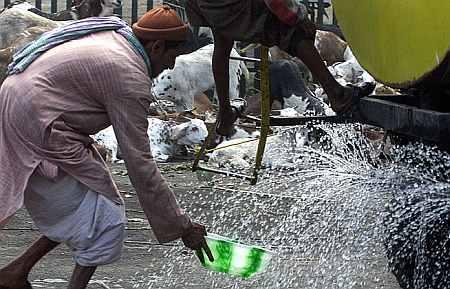
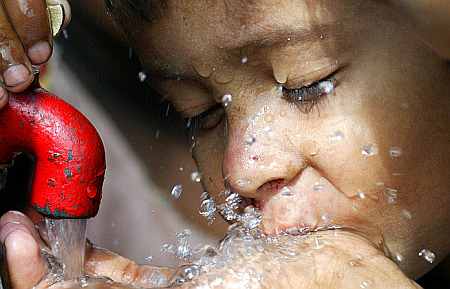
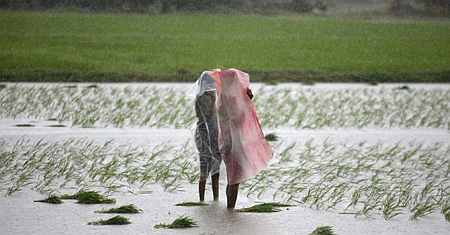
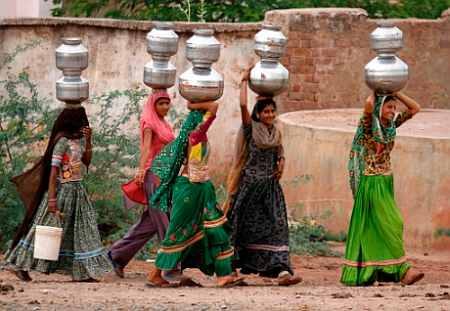
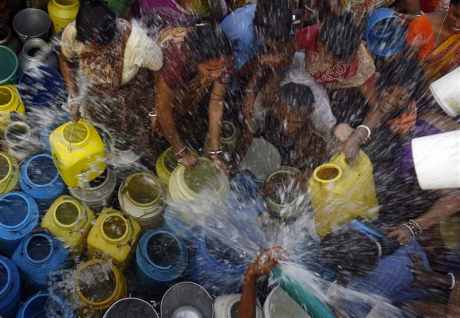

article